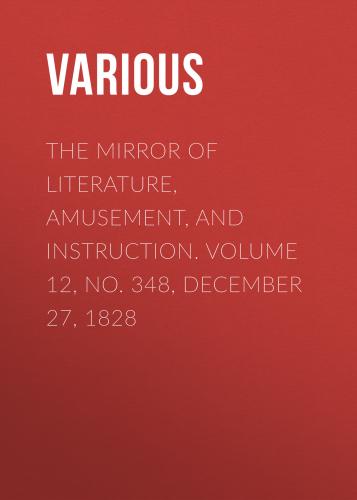But although it may be easily allowed that men of very great natural genius are for the most part exempt from a love of idleness, it ought also to be acknowledged that there are others to whom, indeed, nature has not been equally bountiful, but who possess a certain degree of talent which perseverance and study (if to study they would apply themselves) might gradually advance, and at last carry to excellence.
With the exception of a few master spirits of every age and nation, genius is more equally distributed among mankind than many suppose. Hear what Quintilian says on the subject; his observations are these:—"It is a groundless complaint, that very few are endowed with quick apprehension, and that most persons lose the fruits of all their application and study through a natural slowness of understanding. The case is the very reverse, because we find mankind in general to be quick in apprehension, and susceptible of instruction, this being the characteristic of the human race; and as birds have from nature a propensity to fly, horses to run, and wild beasts to be savage, so is activity and vigour of mind peculiar to man; and hence his mind is supposed to be of divine original. But men are no more born with minds naturally dull and indocile, than with bodies of monstrous shapes, and these are very rare."
From what has been premised, this conclusion may be drawn—that it is not "conscious inability" alone, but often a love of leisure, which prevents us from undertaking any work. Many, to whom nature had given a certain degree of genius, have lived without sufficiently exercising that genius, and have, therefore, bequeathed no fruits of it to posterity at their death.
Конец ознакомительного фрагмента.
Текст предоставлен ООО «ЛитРес».
Прочитайте эту книгу целиком, купив полную легальную версию на ЛитРес.
Безопасно оплатить книгу можно банковской картой Visa, MasterCard, Maestro, со счета мобильного телефона, с платежного терминала, в салоне МТС или Связной, через PayPal, WebMoney, Яндекс.Деньги, QIWI Кошелек, бонусными картами или другим удобным Вам способом.
